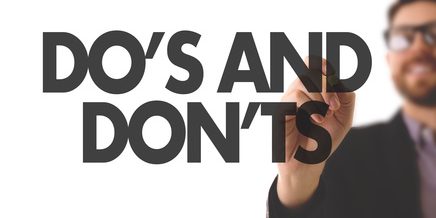Reference checks are one of the best ways to verify information from a potential employee during the recruitment process and are usually the last ‘line of defense’ before candidates are appointed to the role.
Calling references not only validates information about a prospective hire but can also provide important new details that will help you avoid a costly hiring mistake. After all, the average cost of a poor hire can equal 30 percent of the employee’s annual earnings. To bring the right hire onboard for the long haul, keep in mind the following advice for properly checking candidate references.
1. Be transparent with the candidate
Some candidates may perceive a reference check as invasive. Have a plan in place for handling applicants who refuse to grant permission for you to contact references, and be prepared to explain your reasoning and process. Consider providing a release form with the initial job application that explicitly permits your company to conduct reference and background checks. The form should also contain a clear waiver of liability against your organization, as well as former/prospective employers and their agents for information given during a check.
2. Be consistent.
Prepare a list of questions in advance. This will ensure the references’ answers aren’t influenced by how you frame your queries and make it easier to compare responses across the applicant pool. You’ll also want to ask the same questions of each reference for each candidate to maintain fairness.
3. Explain your purpose and set clear expectations.
When you first connect with a reference, take a moment to introduce yourself, explain the purpose of your call, and provide an overview of what the reference can expect from your questions. You should also provide a time estimate for the conversation and a summary of the applicant’s desired position. And, if you’ve caught the reference at a bad time, don’t be afraid to ask to reschedule the call.
4. Ask a standard set of questions.
This will ensure that all applicants are measured and assessed over the same criteria allowing them to be objectively compared against each other. Make sure to record observations and ask for the reasons for the employee leaving their previous position. Ask behavioral questions such as relationships with other staff, customers, ability to meet deadlines, project management skills, and so on.
5. Know your limits.
While it’s important to be specific when speaking with references, never ask questions relating to the candidate’s age, race, sex, religion, national origin, or disability. Queries should revolve around job performance, professional demeanor, strengths and weaknesses, and even character traits.
6. Don’t make snap judgments.
While reference calls can raise red flags, they should not serve as the final say in your hiring decision. One reference’s poor opinion does not mean that the candidate is difficult to work with or stretching the truth on his or her resume. If there are areas of discrepancy between the information provided by a reference and an applicant, give the applicant an opportunity to explain. You may have just caught the reference on a bad day.
7. Don’t rely on your memory.
Take thorough notes during each conversation and keep copies of written communications. It is vital to maintain records of all interactions with applicants and their references to protect against negligent hiring claims and other issues that arise if the employee is unable to fulfill their job duties once hired. Keep tabs on names and titles of all references checked, as well as each attempt to contact a reference and whether it was successful.
8. Don’t speak with personal references only.
Personal references, such as friends and family, are often irrelevant and unnecessary, except in very specific situations— such as those requiring security clearances. Focus instead on speaking with former supervisors, managers, and even coworkers. As a rule of thumb, you’ll want to talk to at least one person who has directly supervised the applicant. This will help you learn more about the candidate’s attendance record, job performance, work habits, and more. You may also want to speak with a coworker who can discuss the applicant’s collaborative and teamwork abilities.
9. Don’t restrict your outreach to the list of references provided
If a reference suggests others who might be better suited to answer your questions, or if you’d like to speak with a former manager named elsewhere on the application, don’t be afraid to do so. However, you must obtain the candidate’s permission first. Never broaden your outreach without first consulting the applicant.
10. Create a standard policy.
No matter which questions you ask, how many references you contact, or how you keep tabs on your interactions, consistency is key. Strongly consider documenting and implementing a standard policy for the reference-checking process. For example, this policy should address how many references you must consult prior to making an offer (at least two is ideal).
Bottom Line
Whether or not that perfect candidate emerges a winner after a thorough reference check, you’ll have peace of mind knowing that you performed your due diligence in the hiring process. You can confidently make a decision that will positively impact your company for years to come.
SW HR Consulting has been helping companies to build their teams and values for over 10 years. Contact us to find out more about our unique hr outsourcing services and see how our expertise can benefit you.







